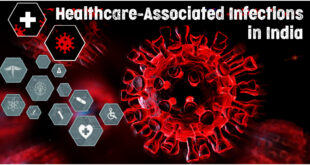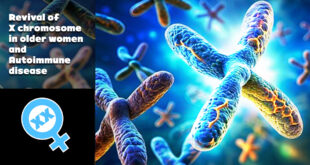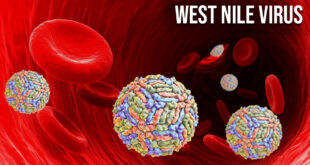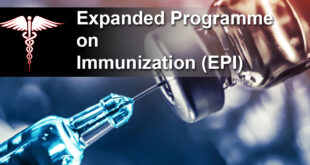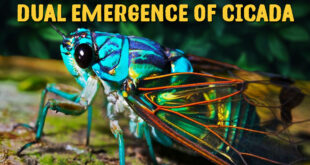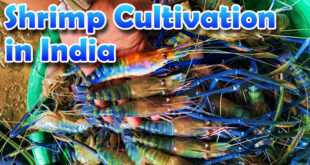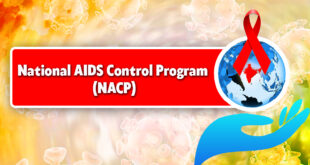Purpose: Organized by the Indian Society of Soil Science (ISSS) in collaboration with the International Union of Soil Sciences (IUSS), the GSC aimed to address critical challenges related to sustainable soil and resource management. Theme: Caring Soils Beyond Food Security: Climate Change Mitigation & Ecosystem Services. Key Focus Areas: Recognition …
Read More »Biology
Marburg Virus
Context (IE): Recent outbreak of the Marburg virus has been reported in Rwanda. Overview of Marburg Virus Marburg hemorrhagic fever is a rare but highly dangerous disease, impacting both humans and nonhuman primates. The virus responsible for the disease is the Marburg virus, which belongs to the family of RNA …
Read More »TB IN INDIA
Recently, the Ministry of Health and Family Welfare published the India TB Report 2024, which reveals a decrease in the mortality rate from Tuberculosis (TB), dropping from 28 per lakh population in 2015 to 23 per lakh in 2022. Key Highlights of the Report Trends in TB Cases and Deaths: …
Read More »Vaccine-Derived Poliovirus (VDPV)
Context: Recently, a two-year-old child from Meghalaya was diagnosed with Vaccine-Derived Poliovirus (VDPV), prompting renewed concerns about the risks linked to the Oral Polio Vaccine (OPV). What is Vaccine-Derived Poliovirus? Vaccine-Derived Poliovirus (VDPV) is a rare type of poliovirus that can develop from the weakened virus strain used in the …
Read More »Pharmaceutical Industry
Context (TH): Recent government decisions that prioritize imports over local production could undermine India’s domestic pharmaceutical sector and potentially result in increased drug prices. Ensuring the availability of affordable medications is vital in India, where out-of-pocket health expenditures made up nearly 47.1% of total spending in 2021. Current Scenario India, …
Read More »Maize Revolution and Production in India
Context (IE) Over the past twenty years, maize production in India has seen a remarkable increase, transforming it into a green revolution driven by the private sector. Production has surged from 11.5 million tonnes in 2000 to over 35 million tonnes in 2024, with yields rising from 1.8 tonnes to …
Read More »Menstrual Leave Policy in India
Context The Supreme Court has directed the Centre to frame a model policy on menstrual leave for women employees. This directive highlights the need for recognizing menstrual leave, which offers time off for those experiencing period pains, similar to sick leave. Currently, menstrual leave is not covered under standard sick …
Read More »Healthcare-Associated Infections (HCAIs) in India
Introduction Define Healthcare-Associated Infections (HCAIs): Infections acquired by patients while receiving medical care in a hospital or other healthcare setting. Highlight the global concern: HCAIs pose a significant public health threat worldwide, leading to increased morbidity, mortality, and healthcare costs. Emphasize the Indian context: The situation in India is particularly …
Read More »Revival of X chromosome in older women and Autoimmune disease
X chromosome revival in older women increases risk of autoimmune disease GS Paper III: Questions related to biotechnology or genetic engineering might benefit from knowing about chromosomes. These fields use techniques like Karyotyping (Chromosomal Analysis). If a question asks about advancements in Genetics or the Human Genome Project, a basic …
Read More »West Nile Cases detected in Kerala
West Nile Virus has been detected in Kerala. The Kerala government on Tuesday said that cases of West Nile fever have been reported from three districts in the state – Thrissur, Malappuram and Kozhikode. GS Paper III (Internal Security & Environment): Focus on Public Health Issues: If the question asks …
Read More »Lakshadweep coral reefs undergoing severe bleaching
GS Paper III – Environment & Ecology : Biodiversity: Coral reefs are hotspots of marine biodiversity. Coral bleaching disrupts these ecosystems, leading to species decline. Climate Change: Rising sea temperatures due to climate change are the primary cause of coral bleaching. Conservation: Understanding the threats to coral reefs and discussing …
Read More »Balanced Fertilization and the Path Forward
Introduction Balanced fertilization is a crucial aspect of sustainable agriculture, aiming to provide crops with the optimal combination of primary, secondary, and micronutrients they require for healthy growth and maximum yield. Understanding Balanced Fertilization: Importance: Balanced fertilization ensures optimal nutrient uptake by crops, leading to improved yields, soil health, and …
Read More »Expanded Programme on Immunization (EPI)
Introduction: The Expanded Programme on Immunization (EPI) launched by the World Health Organization (WHO) in 1974 marks a significant milestone in global public health. It aimed to ensure universal access to life-saving vaccines for children, initially focusing on six childhood diseases: diphtheria, pertussis, tetanus, polio, measles, and tuberculosis. EPI: A …
Read More »Methane Emission from Microbes
Introduction Methane (CH4) is a potent greenhouse gas, contributing significantly to global warming. While natural sources contribute a portion, microbial activity plays a crucial role in methane production and consumption, influencing the overall atmospheric concentration. Sources of Methane Emissions: Natural Sources: Wetlands: Decomposition of organic matter in anoxic wetland soils …
Read More »The Transplantation of Human Organs and Tissues Act (THOTA)
Concept The Transplantation of Human Organs and Tissues Act (THOTA) was enacted in India in 1994 to regulate organ donation, retrieval, and transplantation. It aimed to prevent commercial dealings in organs and ensure ethical practices in organ transplantation. However, despite its noble intentions, several challenges persist in its implementation. Provisions …
Read More »One Health Approach
Definition and Concept: One Health is a collaborative, interdisciplinary approach that recognizes the interconnectedness of human, animal, and environmental health. It emphasizes the need for cooperation among various sectors including human health, animal health, agriculture, environment, and others to achieve optimal health outcomes. Significance in India: India faces numerous health …
Read More »Dual Emergence of Cicada
Concept: Cicadas are insects belonging to the hemipteran order, renowned for their loud, intricate, and species-specific acoustic signals or songs. Cicada Diversity: India and Bangladesh boast the highest generic diversity of cicadas globally, closely followed by China. Most cicadas inhabit the canopies of natural forests with towering trees. One …
Read More »Glycemic Index of foods and diabetes
Concept : About Glycaemic Index : The Glycemic Index (GI) is a scale ranging from 0 to 100, which assigns values to foods based on their effect on blood glucose levels relative to pure glucose, which is arbitrarily given a value of 100. This value indicates the rise in blood …
Read More »Unveiling the Potential: Exploring Sustainable Shrimp Cultivation Practices in India’s Aquaculture Sector for Economic Growth and Environmental Conservation
Concept TABLE OF CONTENTS Introduction Key Features of Shrimp Cultivation: Contribution to Economy and Employment: Government Initiatives and Regulations Introduction • Shrimp cultivation, also known as shrimp farming or aquaculture, is the practice of cultivating shrimp for commercial purposes. • Cultivation of shrimps is a significant economic activity, particularly along …
Read More »Evaluating the Efficacy and Sustainability of National AIDS Control Program (NACP): A Comprehensive Review
TABLE OF CONTENTS Introduction Objectives Implementation Key Components Target Groups Achievements Challenges 1. Introduction NACP is a comprehensive program launched by the Government of India to combat HIV/AIDS in the country. It was initiated in 1992 and has undergone several phases of implementation to address the evolving challenges posed by …
Read More » Chinmaya IAS Academy – Current Affairs Chinmaya IAS Academy – Current Affairs
Chinmaya IAS Academy – Current Affairs Chinmaya IAS Academy – Current Affairs







